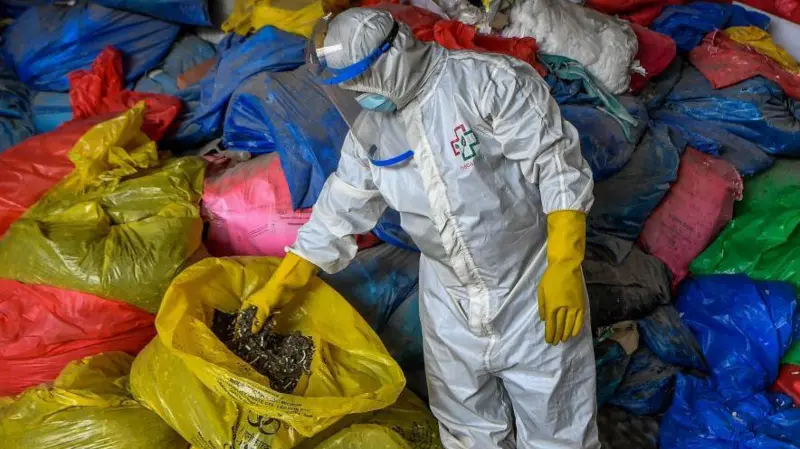Introduction
Corruption remains one of the most persistent and destructive forces in global politics, affecting countries across the world, regardless of their level of economic development or political system. It undermines democratic institutions, hinders economic growth, perpetuates inequality, and erodes public trust in government. Whether in the form of bribery, embezzlement, cronyism, or the manipulation of public resources, corruption distorts the political landscape, making it more difficult for citizens to hold leaders accountable and for governments to serve the public good. In the most extreme cases, it can fuel conflict, contribute to state failure, and exacerbate social divisions.
This article explores the impact of corruption on global politics, examining its effects on governance, security, international relations, and economic development. By analyzing both the causes and consequences of corruption, we can better understand how it shapes political systems and global interactions, as well as the efforts being made to combat it.
1. Corruption and the Erosion of Governance
Corruption undermines the very foundations of good governance by distorting the functioning of political and administrative institutions. It leads to inefficient government services, misallocation of resources, and the undermining of the rule of law.
Weakening of Public Institutions
When public officials engage in corrupt practices, it often results in the mismanagement of state resources and public funds. Corruption creates a situation where government decisions are based on personal gain rather than the public good, thus weakening institutions and undermining the legitimacy of the state. Instead of delivering essential services such as healthcare, education, and infrastructure, funds are diverted into private pockets, and public policies are shaped to benefit the corrupt elites rather than the general population.
- Example: In Nigeria, corruption has been endemic at both the federal and state levels for decades. The siphoning off of oil revenues and public funds has significantly hampered the country’s development, leading to widespread poverty despite the country being one of the largest oil producers in the world. Corruption has also undermined the effectiveness of security forces, which has contributed to the persistence of terrorism and insurgencies, particularly in the Northeast.
Diminished Accountability and Transparency
A major consequence of corruption is the erosion of accountability. Public officials who are involved in corrupt activities often operate with impunity, knowing that they can escape prosecution through their control over key political, legal, and media institutions. This lack of accountability breeds a cycle of corruption that can be difficult to break. In many cases, political leaders deliberately obstruct investigations into corruption, using their power to silence whistleblowers and independent media outlets.
- Example: In Russia, President Vladimir Putin has been accused of fostering a culture of corruption through his extensive patronage networks, where political and economic rewards are given to loyalists. Investigations into high-level corruption have often been thwarted, and journalists who attempt to expose corruption face harassment and even violence. This lack of accountability has helped to entrench Putin’s grip on power while limiting the capacity for democratic oversight and reform.
Impediments to Democracy
Corruption often undermines democratic institutions, as it disrupts the electoral process, diminishes voter trust, and allows political elites to remain in power regardless of public support. Electoral fraud, vote-buying, and manipulation of election outcomes are common forms of corruption that prevent free and fair elections, distorting democratic representation and undermining public confidence in democratic processes.
- Example: In Afghanistan, corruption was a major issue during the presidential elections. Allegations of vote-buying, voter intimidation, and electoral fraud in the 2014 and 2019 elections undermined the legitimacy of the political process, contributing to widespread public dissatisfaction and political instability.
2. Corruption’s Impact on Economic Development
Corruption has a detrimental effect on economic development, stifling growth, deterring investment, and perpetuating inequality. It leads to inefficient use of resources, reduces government revenues, and creates an uneven playing field that disproportionately benefits elites at the expense of the broader population.
Economic Inefficiency and Resource Misallocation
When government officials and bureaucrats accept bribes or engage in corruption, resources that could be used for public goods and services are diverted into the hands of private individuals. This misallocation of resources not only slows economic growth but also exacerbates poverty and inequality. In many countries, corruption skews public spending towards vanity projects or wasteful expenditures that benefit the few, while leaving essential services like healthcare, education, and infrastructure underfunded.
- Example: In South Africa, corruption within state-owned enterprises (SOEs) has had significant economic repercussions. One of the most high-profile cases was the state capture scandal involving former President Jacob Zuma and the Gupta family. This scandal involved widespread corruption, with government contracts and procurement processes manipulated for personal gain. The resulting financial mismanagement led to a downgrade of South Africa’s credit rating and a significant decline in foreign investment.
Foreign Investment and Business Climate
Corruption creates an unpredictable and unfair business environment that discourages both domestic and foreign investment. Investors are often unwilling to operate in markets where corruption is prevalent, as the costs of doing business can become prohibitively high. Corruption increases transaction costs, hinders competition, and creates barriers to entry for new businesses, stifling innovation and economic dynamism.
- Example: In Mexico, corruption has long been a barrier to foreign investment, particularly in industries such as construction and energy. Corruption-related risks increase costs for foreign firms and limit the attractiveness of the country as an investment destination. The impact of corruption on business is particularly evident in sectors like the oil industry, where deals often depend on securing bribes for government contracts.
Growth of Informal Economies
In countries with widespread corruption, formal businesses often operate in parallel with informal economies where rules and regulations are ignored, and individuals and businesses rely on bribery to bypass bureaucratic red tape. This undermines the formal economy, deprives the government of tax revenue, and perpetuates poverty.
- Example: In India, corruption in the tax administration has led to the widespread existence of a shadow economy, where businesses avoid paying taxes through bribery and other forms of illicit behavior. The informal sector in India is massive and contributes significantly to the economy but does not generate sufficient revenue for the state.
3. Corruption and Global Security
Corruption plays a critical role in exacerbating global security challenges. It undermines the effectiveness of security institutions, fosters political instability, and can contribute to conflict. It also facilitates illicit activities such as human trafficking, drug smuggling, and terrorism.
Political Instability and Conflict
In some cases, corruption contributes directly to political instability and even violent conflict. When corrupt leaders or elites prioritize their own financial interests over national stability, it can alienate the public, provoke widespread dissatisfaction, and fuel popular uprisings or armed rebellion.
- Example: In Syria, the corruption of the ruling Assad family and its loyalists played a significant role in the breakdown of the country’s political order. The widespread corruption, combined with economic inequality and political repression, contributed to the mass protests in 2011, which spiraled into a brutal civil war.
Corruption and the Security Sector
Corruption within the security forces weakens the state’s ability to maintain law and order. In conflict zones, corrupt practices within the police and military may allow insurgent groups, criminal organizations, or terrorist cells to flourish, undermining the state’s control over its territory and further exacerbating violence.
- Example: In Afghanistan, widespread corruption within the police and military undermined efforts to combat the Taliban insurgency. Funds intended for security forces were often embezzled, and many officers and soldiers were known to be on the payroll of insurgents. This lack of integrity within the security sector contributed to the eventual collapse of the Afghan government after the U.S. withdrawal in 2021.
Global Networks of Corruption
Corruption often transcends national borders, with illicit financial flows, money laundering, and tax evasion facilitating international criminal networks and organized crime. The illicit trade in arms, drugs, and human trafficking are frequently funded through corrupt practices, which destabilize entire regions and can contribute to global security risks.
- Example: In Central America, drug cartels and criminal organizations have long been able to exploit corrupt political and law enforcement officials to maintain control over drug trafficking routes. The resulting violence has destabilized countries such as Honduras, Guatemala, and El Salvador, contributing to mass migration and regional insecurity.
4. Efforts to Combat Corruption
The fight against corruption is an ongoing challenge, requiring concerted efforts at the national, regional, and international levels. Several initiatives and strategies have been implemented to curb corruption, including legal reforms, anti-corruption watchdogs, and global transparency initiatives.
International Anti-Corruption Frameworks
International organizations such as the United Nations, the World Bank, and the International Monetary Fund (IMF) have developed frameworks to combat corruption. These include conventions like the United Nations Convention Against Corruption (UNCAC), which sets standards for preventing corruption in both the public and private sectors, and promoting transparency in public institutions.
- Example: The OECD Anti-Bribery Convention, which encourages governments to criminalize bribery of foreign public officials, has been an important tool in addressing cross-border corruption, especially in the context of international business dealings.
National Anti-Corruption Agencies
Many countries have established anti-corruption commissions and watchdog agencies to investigate and prosecute corrupt practices. These institutions play a vital role in strengthening transparency and accountability, but their effectiveness is often undermined by political interference and lack of independence.
- Example: In Hong Kong, the **Independent Commission Against Corruption (IC









